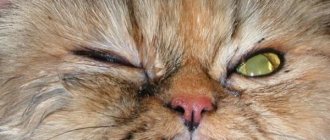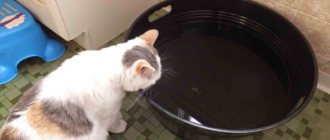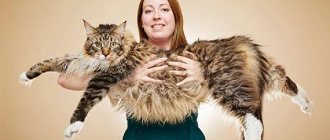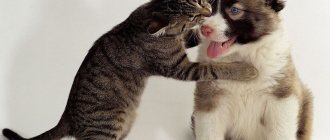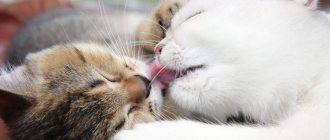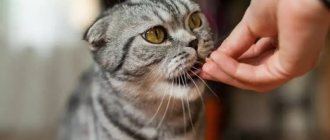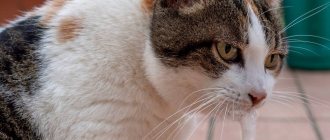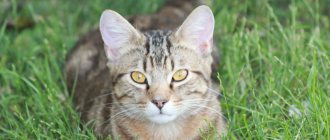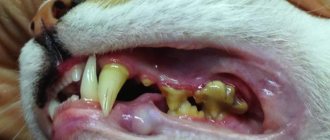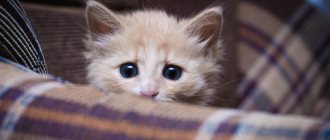Pet owners have endless questions about what cats can and cannot eat. One such question is: can cats drink tea? The answer is yes , but you should always exercise moderation to prevent any possible side effects. A small amount per day won't hurt. Make sure your cat's main source of hydration remains filtered water.
Does your cat always try to drink tea when you leave the cup on the side? Cats will often try to lick, sniff, and even drink tea, but this can be dangerous for cats, especially if the tea contains caffeine.
Cats and tea: what you need to know
From green tea to oolong to sweet tea, there's a tea to suit every taste. Recently, tea made from finely ground powder of specially grown and processed green tea leaves has become increasingly popular.
© shutterstock
Tea leaves contain a variety of chemical compounds, including stimulants such as caffeine, theobromine and theophylline, xanthines, and antioxidants called polyphenols. People often drink tea simply for its refreshing effects, and several chemicals contained in tea have been shown to have beneficial effects on people. Although humans also drink this substance to help their voice or throat, kittens usually do not need to drink it for this purpose. But what about cats?
Results
It may not be a big deal if your pet jumped on the table and accidentally tasted the tea from your cup. However, it is better to observe it for several hours. If you notice hyperactivity or other unusual changes in your cat's behavior, we recommend contacting your veterinarian.
Tea, even green tea, contains a large amount of caffeine and is therefore harmful to your cat's health. However, a furry friend can keep company during tea time if he is offered herbal drinks without milk or sugar. Herbal teas will provide your pet with vitamins, minerals and antioxidants that help fight infections and promote faster wound healing. These drinks also have a calming effect.
Based on materials from excitedcats.com
Can cats be given tea?
Some cats like to drink tea from time to time. Drinking in small quantities is likely not a problem. But drinking large amounts of tea can lead to serious health problems for your cat due to the chemical compounds contained in the tea.
For example, caffeine consumption can cause cats to become hyperactive, restless, vomiting, increased heart rate, increased blood pressure, irregular heartbeat, tremors, and elevated body temperature. In severe cases, convulsions and collapse may occur. In rare cases, the result can even be death.
Another substance found in tea is theobromine, better known as the chemical in chocolate that causes toxicity in dogs. Since cats don't have sweet taste buds, you don't often hear about chocolate poisoning in cats. However, cats also suffer from this condition and may be even more sensitive to theobromine than dogs.
Theobromine can affect a cat's body in several ways, including:
- Increases heart rate
- Lower blood pressure
- It is a diuretic and may increase fluid loss.
- Stimulates their nervous system
- Relaxes smooth muscles
While most cats won't be harmed by a small amount of tea, why risk your beloved pet's health by giving him something that contains chemicals that are considered poisonous? If your cat asks for tea, simply say “NO!”
“Didn’t I make this difference to myself?”
And, as a person who does not have access to all sorts of testing laboratories, where water will be disassembled into molecules, compared and given a piece of paper, I approached the “evidential” procedure more creatively. Namely, I decided to conduct another experiment with shungite, a more visual one.
In the same shungite book they said that the black pebble works wonders not only with water: it can also turn wine into water. More precisely, remove the feeling of the degree, but leaving this same degree in the drink.
I think: “If shungite can do this with alcohol, then it definitely works, here the difference “before” and “after”, as they say, will be obvious.” And she began to act.
However, I decided to change the experimental conditions a little. I took not wine, but vodka, and specially bought an unremarkable bottle of “white” in the store at the most affordable price. I opened it, sniffed it - I shuddered from the smell (I don’t drink alcohol myself, so I react sharply to all alcoholic smells), okay, I tell myself, this will suit us.
I poured low-grade alcohol into a jar, poured shungite into it in the prescribed proportions and put it away to infuse. The jar stood in a dark nightstand for several weeks for sure.
I took it out, opened it, and realized that shungite works! The smell of this vile was almost not felt. I treated my man to a glass of this drink - he said that it was very good, soft, and the degree did not go away. And only then I heard somewhere that someone even patented the recipe for such vodka, purified with shungite.
By the way, I still infuse water with shungite, sometimes the black stone disappears from pharmacies, then I order several packs at once on special websites for future use. Plus, I started adding silicon to shungite. It can also be found in pharmacies or on the Internet.
Is green tea toxic to cats?
Green tea is generally safe for cats in small quantities. To give you an idea, it takes five cups for your cat to experience poisoning. Even I won't drink that much tea in a day.
Warm tea is a calming drink for your cat during the winter. However, there is one substance to watch out for: caffeine. Each cup of tea contains 70 mg of caffeine. This amount is not enough to poison a cat. It would take about 40 mg of caffeine per kilogram to cause serious illness in pets.
Of course, tea doesn't have as much caffeine as coffee. However, caffeine is not ideal for cats. Small amounts of caffeine may not cause adverse reactions, but it's not worth the risk.
© shutterstock
Green tea contains high levels of catechins, polyphenols that act as antioxidants. It is known to slow cell damage, among other health problems. Research also shows that polyphenols have the ability to provide additional protection against UVB rays.
You can also apply green tea topically to heal infections on your cat's fur. Please note that only green tea provides these benefits. Other types of tea may affect your cat differently, so you should always consult your veterinarian.
The cat finishes its tea after its owners. Is it dangerous?
Contents hide
We can hardly imagine a mustachioed pet calmly having tea with its owners. But cats have a lot of curiosity, that’s for sure. Let’s imagine early morning, when the whole family, being late for kindergarten, school, and work at the same time, hastily has breakfast. Not everything is cleared from the table in a timely manner. In particular, cups of unfinished tea are often left behind. Now let’s add two to two: as soon as the house is empty, the cat will definitely jump (yes, yes) onto the table to make an inspection. What happens if the animal decides to try the owner's tea?
The old saying is true: curiosity really kills cats. And, as they say, out of the blue. When it comes to eating and drinking, purrs are quite picky, so they won’t try just anything. But pure curiosity often intervenes: since the owners drink it, why not try it? And now we give a quick answer: tea (as well as coffee) is strictly not recommended for cats. Moreover, these drinks are toxic for tailed animals due to the high caffeine content. According to experts, if a cat finishes the tea left in a hurry on the table, the matter could end in tragedy.
What happens to a cat that tries tea? Of course, it all depends on the dose. But even a few sips are enough for the animal to develop severe vomiting, diarrhea in combination with tachycardia and cardiac dysfunction. The critical dose of caffeine for the average cat is 80 mg. For reference, a cup of black tea contains 50 mg of caffeine. As you can see, there is a reserve, but under no circumstances should you take risks. It should be especially emphasized that all cats are different, and we indicated a very average threshold. For some animals, even a couple of sips of tea can result in death.
What to do, how to behave? The very first piece of advice: monitor your pet’s condition closely. Caffeine poisoning, if it occurs, develops quickly. Watch for symptoms such as hyperactivity, increased nervousness and excitability, increased drooling, trouble breathing, rapid heart rate, seizures, vomiting and diarrhea. Symptoms of poisoning develop in the interval from 30 minutes to 6-12 hours. As noted above, it all depends on the size and health of the particular animal, as well as the amount of drink consumed. We note the main thing for ourselves: if you absolutely know or are sure that your pet has tried the tea, go to the veterinarian as soon as possible. While there is still time, the doctor will try to induce vomiting. In later stages, caffeine will have to be removed medicinally using droppers.
Is there tea that is harmless to cats? We emphasize: both black and green tea pose a mortal danger to the health of cats. Therefore, leaving unfinished drinks right on the table is a huge risk. However, there are herbal teas that cats are allowed to drink, such as highly diluted infusions of chamomile, echinacea, calendula, licorice root and dandelion root. You can even give (in very small doses and microscopic concentrations) an infusion of valerian. If your cat loves catnip, you can brew it and offer it as a decoction (tea). We repeat: only a highly diluted and non-concentrated infusion. Only in this case will it have its calming effect. However, we still do not recommend getting carried away with herbal teas. All cats are different, and some animals still react painfully to such herbal infusions.
What is the ideal drink for a cat? The answer is simple: clean drinking water. The water you use yourself. As for the well-known milk, extreme caution must be exercised here: milk is “not the same” now, and many animals suffer from individual lactose intolerance.
Material used: Can cats drink tea? Source: wamiz.co.uk Photo: Alena Ozerova – Shutterstock
Why does a cat like tea?
Some cats are tea drinkers for a variety of reasons. Others say that because it is herbal, the tea's scent can be reminiscent of catnip. You should know that cats have different tastes. One cat may like tea, but another may not.
However, no matter how much your cat begs for tea, you should not give it too much. Again, most teas contain caffeine, which is not good for your kitty. In addition, tea contains oxalic acid, which can cause kidney problems if taken in large quantities.
Surprisingly, some cats don't like the smell of the bags. A strong smell can scare away a curious kitten.
This was my first experiment on a person. There was also a second one.
From the book, Zelanda learned about such a miracle device as Akvadisk.
I studied the site, a lot of interesting things are written. On third-party sites where they praise, and where they write that this is a complete scam for suckers, it is not true that a piece of wood impregnated with wax cannot structure anything there, etc., etc.
But we had, have and will have critics of everything, but the magical device sank into my soul - and I bought it.
My Akvadisk arrived, I gave myself some water as written in the instructions. I feel like the taste has changed, again there is a feeling that I want to drink this water. For me, such a reaction from the body is the best proof that something has changed for the better.
Many may say that this is a placebo effect. I thought about him too. And again I decided to experiment with another Homo sapiens, his name was Igor.
This time I did this: I took 4 completely identical glasses and poured them in:
- tap water
- water infused with shungite (I also pour raw water there)
- regular boiled water (I poured the one from the tap into the kettle)
- water infused with shungite and passed through Aquadisk.
I put these 4 glasses in a row, remembering where each water was (everything was equally transparent on the outside) and invited my friend to taste it and arrange the glasses according to the degree of deliciousness of the contents. Naturally, he didn’t know what I poured or where I poured it, so he began to take a sip from each glass and taste it.
And what do you think?
He clearly defined where the “muck” was poured (he’s talking about unboiled water), where it’s “none” (he’s talking about boiled water) and where it’s tasty. In first place was the water from Aquadisk.
That’s how I was convinced that Akvadisk works, and I don’t care that someone somewhere is scolding it, I felt the difference and so did my friend, his uninterested face. Before criticizing anything, let them repeat my experiment. It's simple.
And now I’ll tell you...
